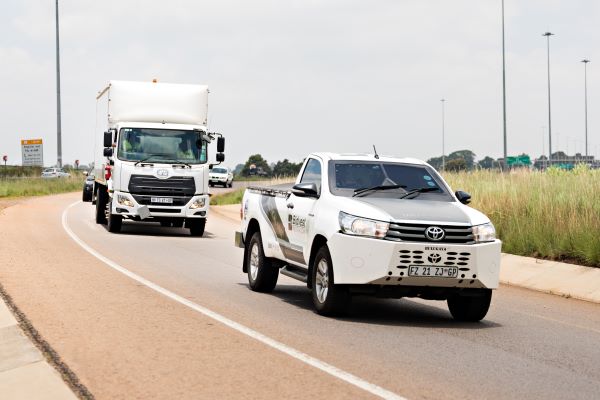Road safety plays an integral part in the sustainability and transformation of the road transport system, and everyone needs to apply sustainability practices and reporting, says Claes Tingvall, globally recognised as the “godfather” of the Vision Zero road-safe systems paradigm.
Tingvall, who has published more than 150 scientific articles on traffic safety, told South Africa’s Transport forum that it can no longer be that road transport management systems (RTMS) operate in silos, as they are part of a holistic network seeking to achieve the goals set out in the UN Global Plan on Sustainability.
Establishing and assigning a safety footprint to every organisation in a value chain will put road safety at the highest priority level alongside health, climate and equity.
It is a view embraced by Bidvest International Logistics (BIL), which is promoting responsible consumption and production through the implementation of effective RTMS and International Organisation for Standardisation (ISO) systems.
“Certification of these systems demonstrates commitment by the Road Freight Division to improve safety on our roads,” says BIL’s Road Freight SHERQ Manager, Taryn Wenlock.
“This is achieved by reducing and minimising overloading, thus preventing road damage, reducing emissions by improving efficiency in various industry supply chains, and taking care of driver health and wellness, ensuring safer roads for all South African road users.”
Furthermore, by committing adherence to the National Road Traffic Act and Occupational Health and Safety Act and incorporating quality and environmental management systems (IMS), an organisation will find favour with clients and prospective clients increasingly recognising the value of sustainability practices.
“It also increases productivity as we provide a quality service with minimal inefficiencies. The fact is if we failed to manage our operations by participating in and driving the self-regulated managements systems, we would run an unsustainable business,” Wenlock says.
BIL’s Road Freight Division has adopted a number of accredited systems, including: R2MS (a software management tool which assists in managing drivers, vehicles and infringements), RTMS, Safety & Quality Assessment for Sustainability (SQAS), IMS (ISO 9001:2015 and ISO 14001:2015), the South African National Standards code relating to the transportation of dangerous goods, CCTV surveillance and monitoring, along with violation reports and live tracking, and Fleetboard (behaviour-based safety), among others.
A new certification is ISO9001, a framework for corporations to report on traffic safety to promote zero-speeding tolerance. It brings a number of advantages, including establishing systematic processes which consider risks, opportunities and legal requirements. It also evaluates quality of performance, seeking to improve on it by taking appropriate action. Through the recognition of having achieved an international benchmark, customers may be influenced to become more aware of their own social responsibilities.
“ISO 9001 has ensured that all divisions within BIL are operating on one common platform with complete compliance and one language spoken, creating harmonisation. It has assisted divisions to conduct comparative statistical trends to ensure improvement opportunities are identified and continually reviewed on a broader spectrum,” Wenlock says.
ISO 14001, Environmental management, is another part of BIL’s compliance arsenal.
According to Muhammad Ali, managing director and lead auditor of South African ISO standards training and implementation specialist WWISE, this standard brings a number of benefits to freight forwarders.
“Not only does it demonstrate compliance with current and future statutory and regulatory requirements, but it betters environmental performance of the business. By achieving strategic business aims by incorporating environmental issues into business management, an organisation is likely to be more competitive and financially sound due to improved efficiencies and reduced costs,” Ali says.
Wenlock says implementing ISO 14001 has meant BIL has been able to set new environmental objectives taking into consideration the activities of our operations and the impact it has on the environment.
“We can set meaningful Environment Social Governance (ESG) objectives, address the potential risks our operations could have on greenhouse gases and ESG and treat these accordingly by monthly monitoring and measuring.
“It has brought enhanced focus on areas that in the past would never have been considered. Although we have always measured these scopes, our focus was not as strategic and dedicated, as we have now progressed to another level within the industry and this area of our IMS.”








